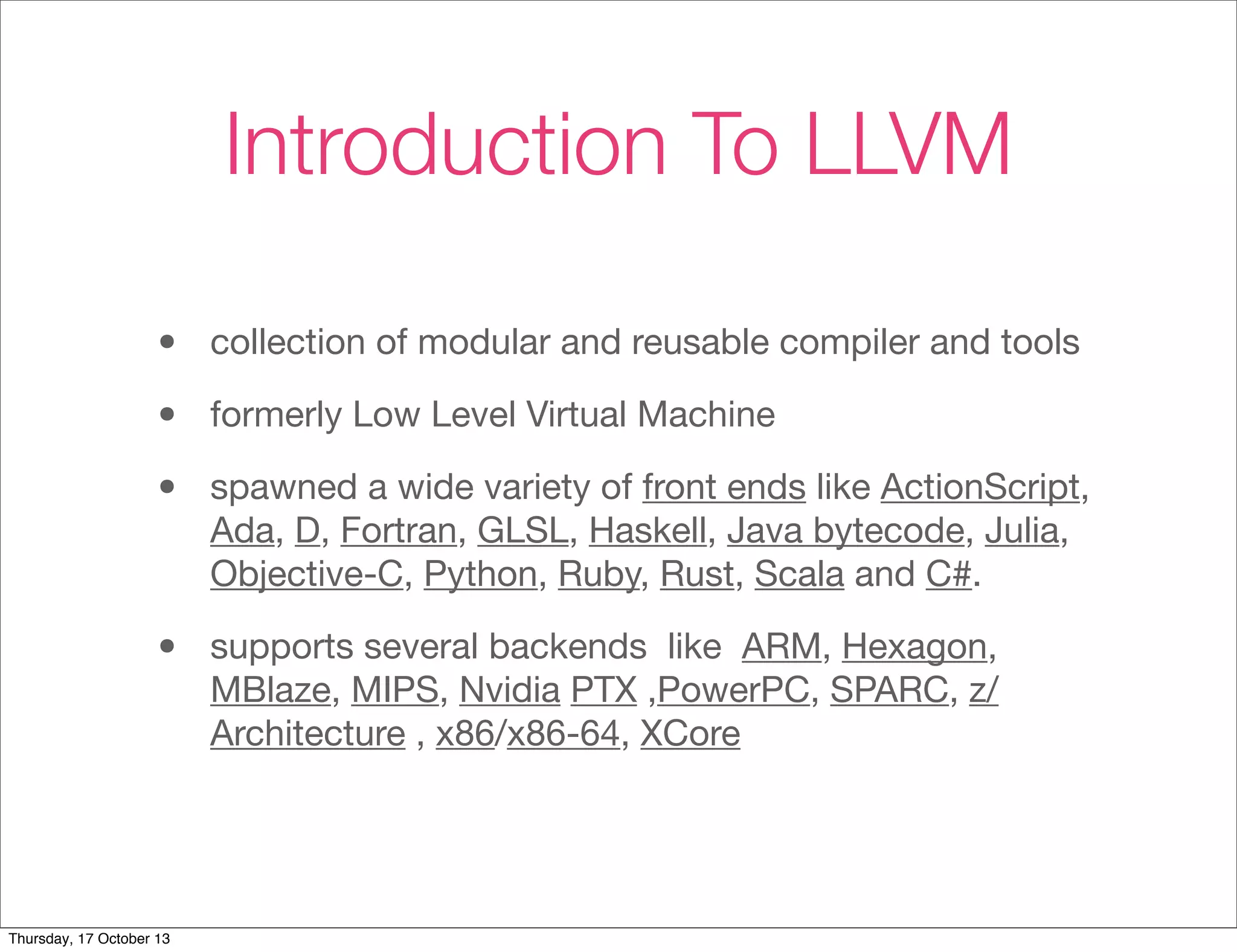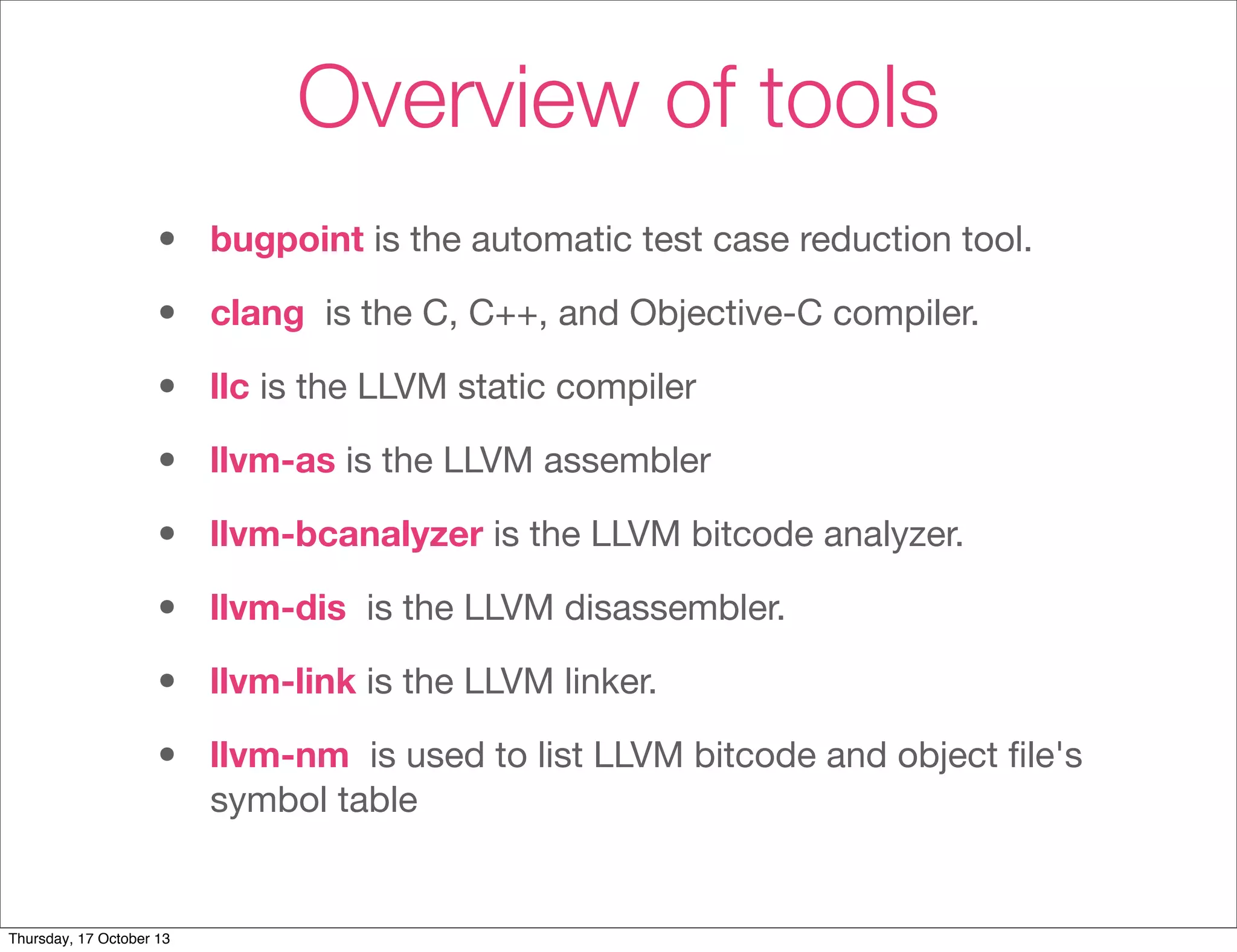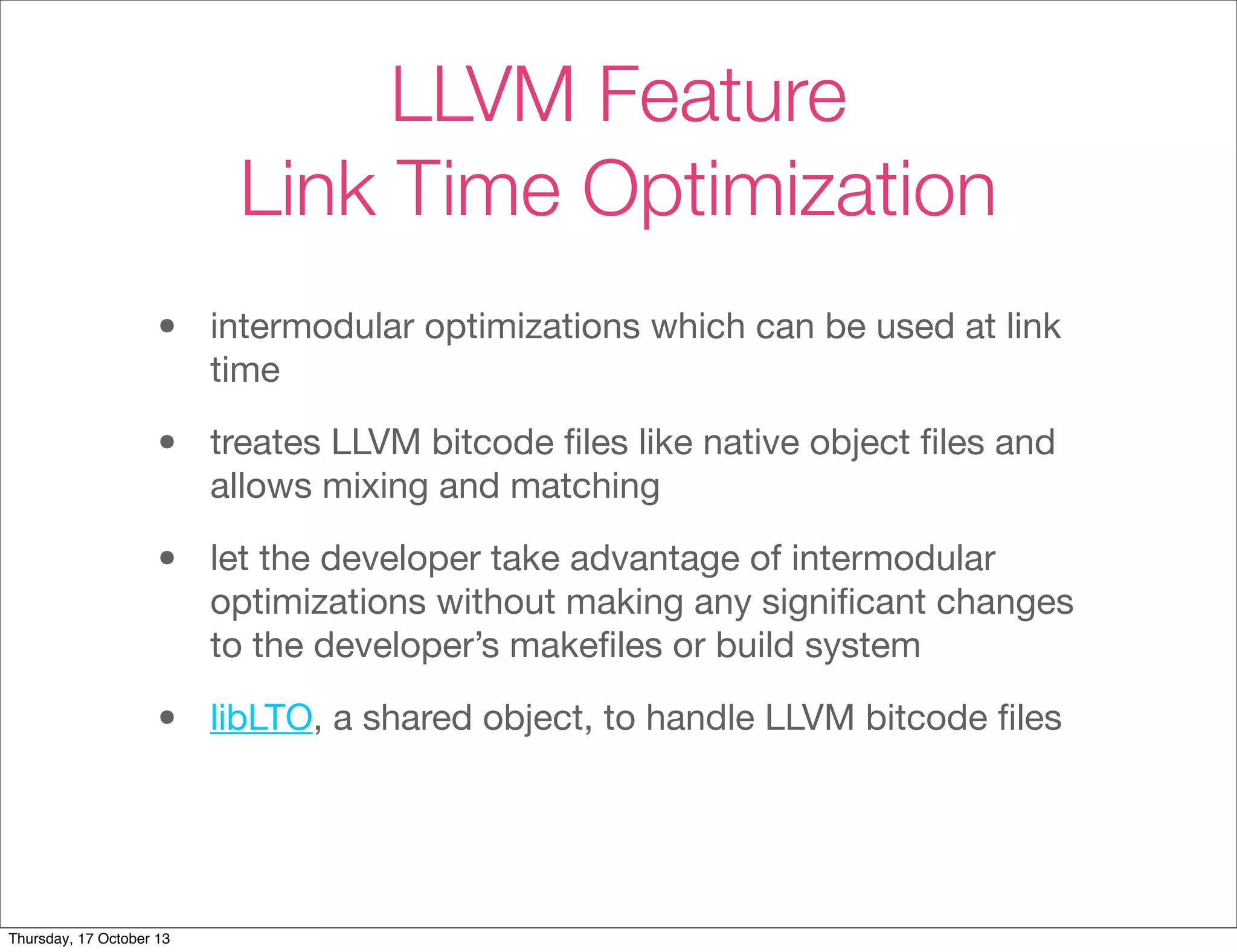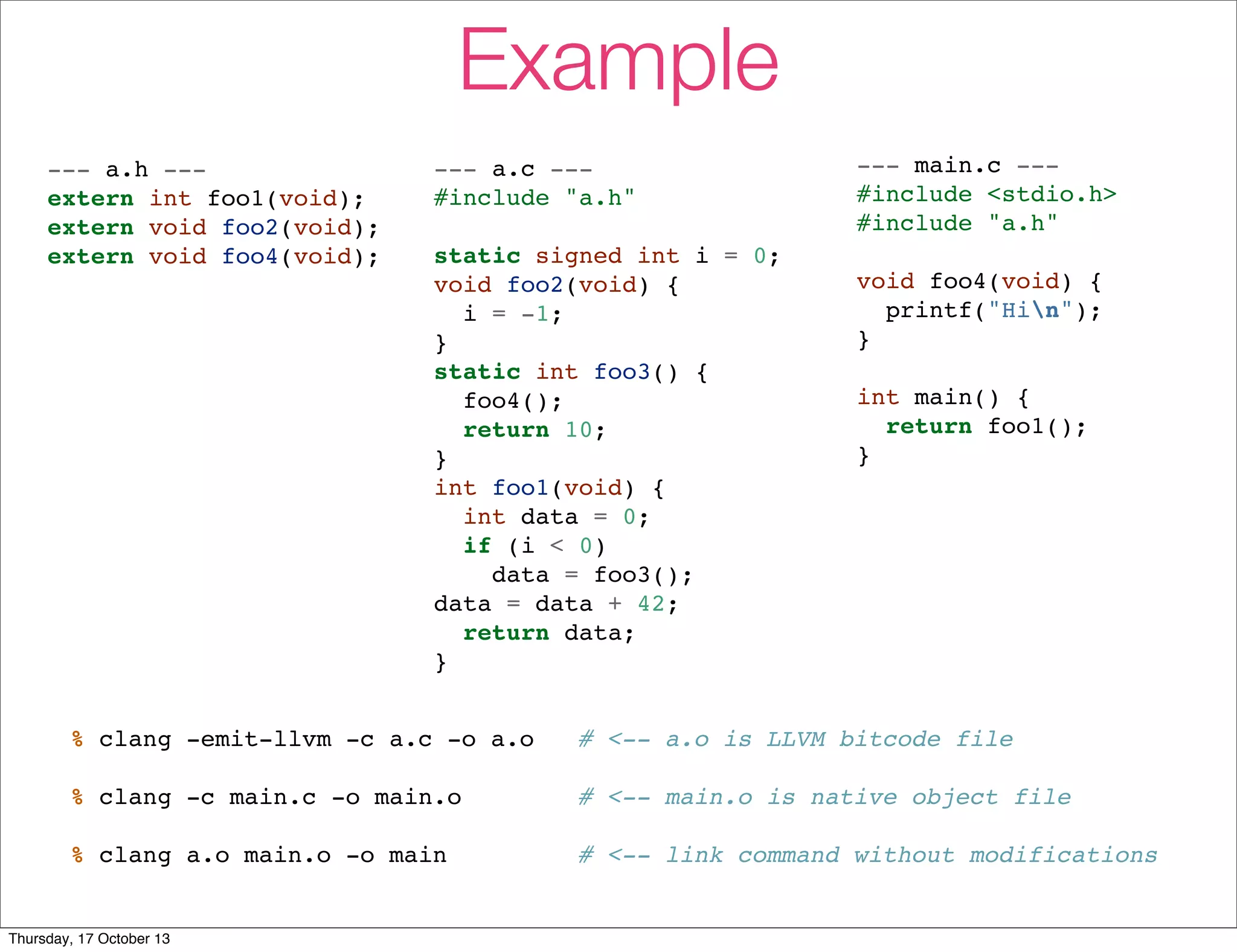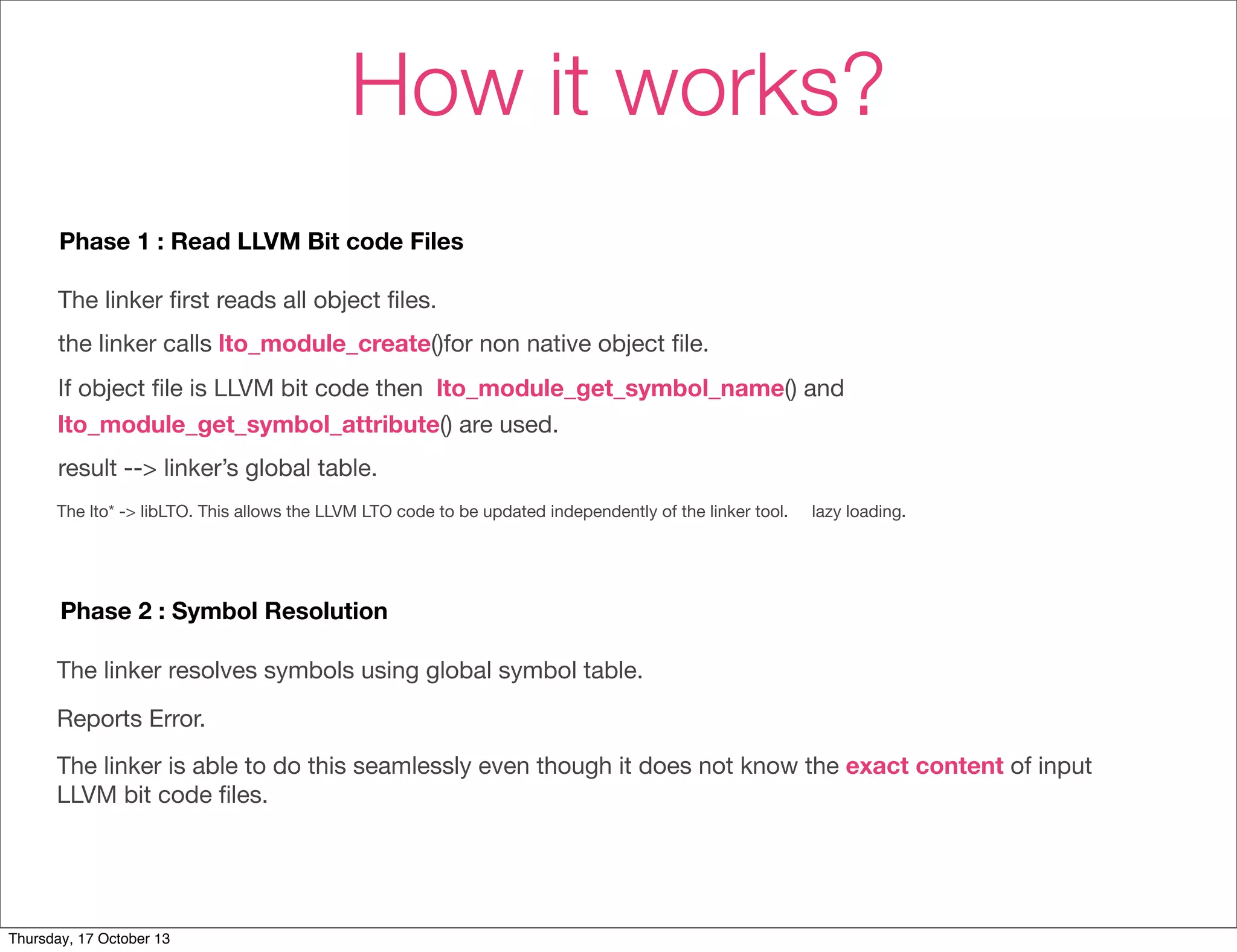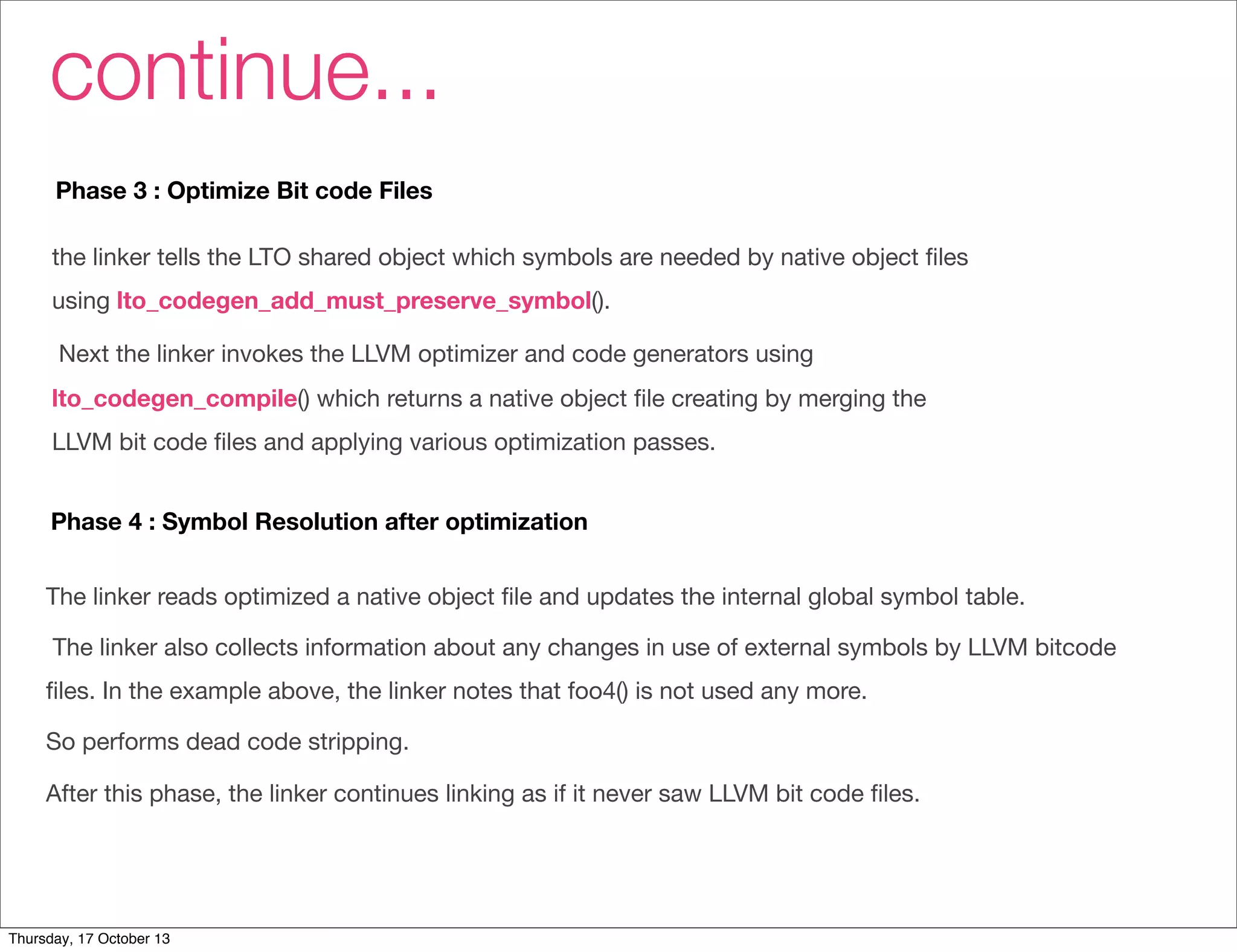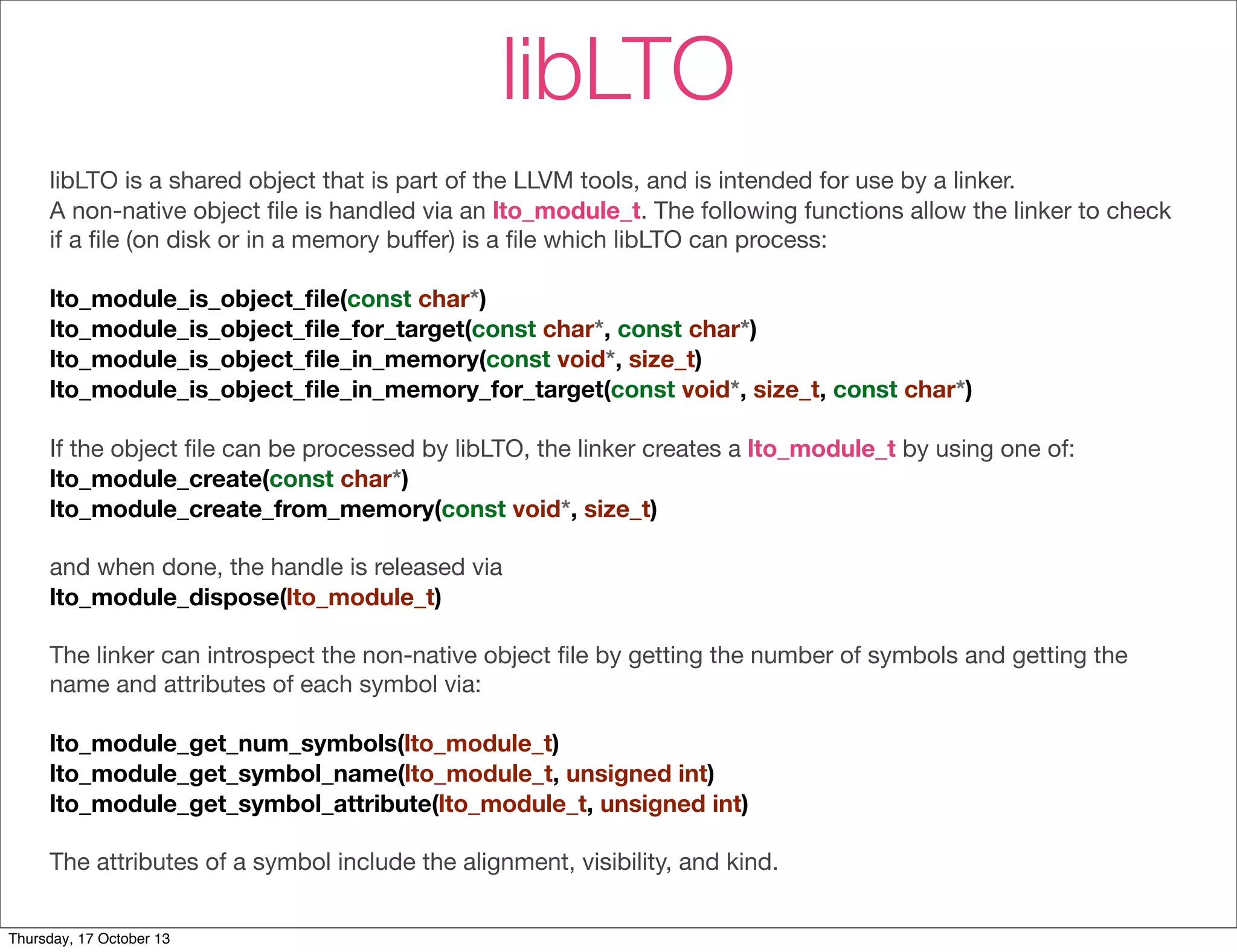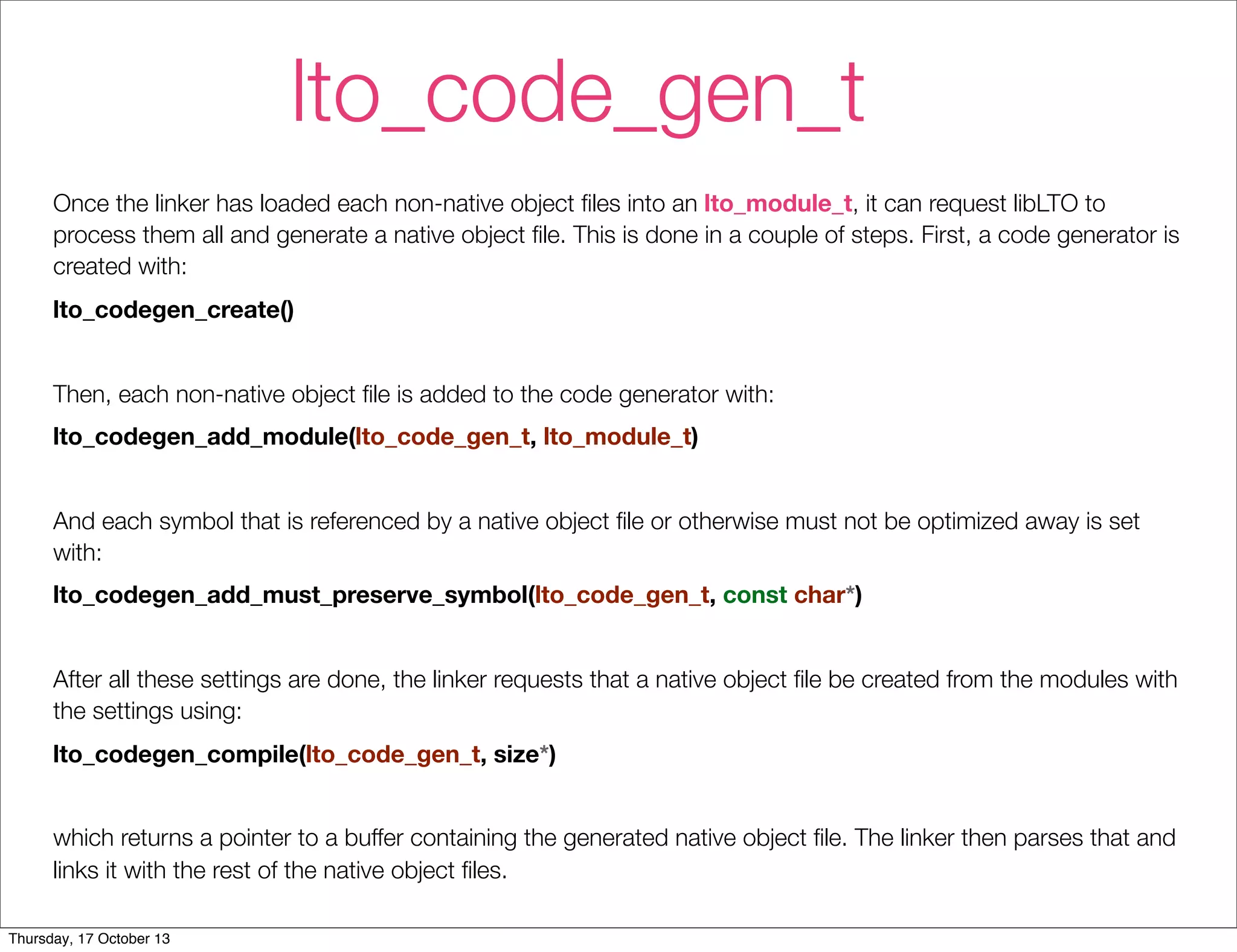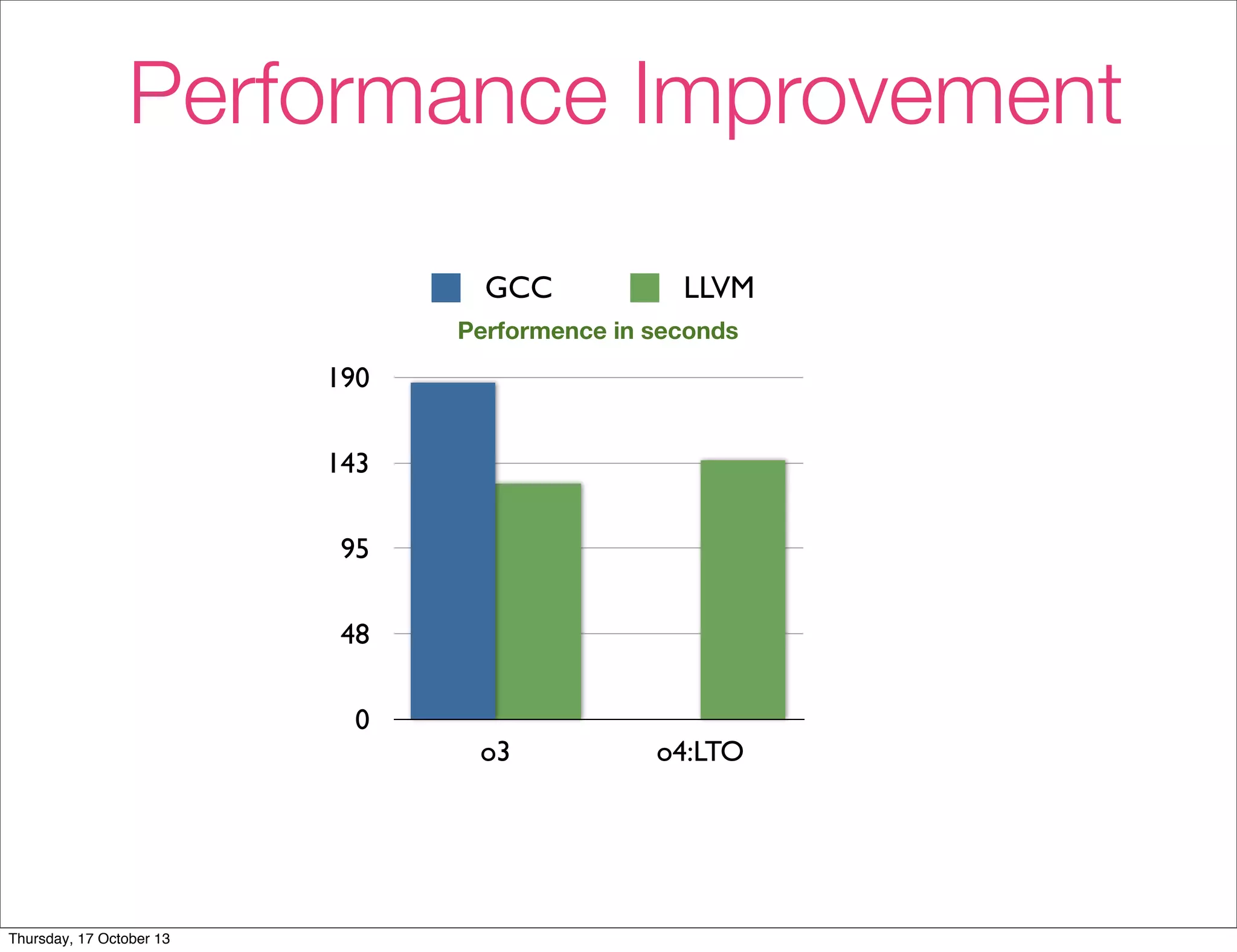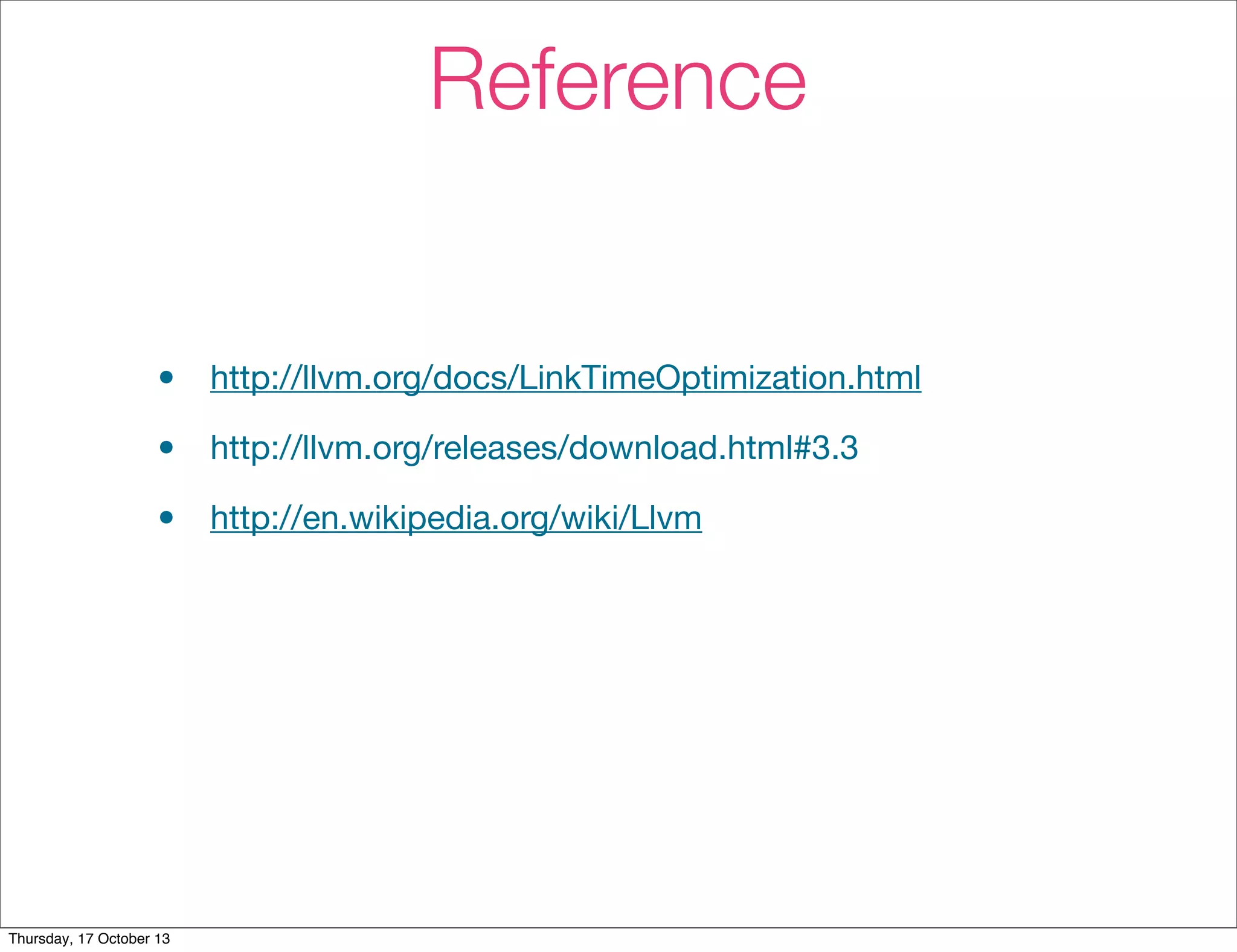The document provides an overview of the LLVM compiler and its tools, highlighting its modular design for various programming languages and backends. It details the process and benefits of Link Time Optimization (LTO), explaining how LLVM handles bitcode files for optimization and symbol resolution during linking. Additionally, examples of code and performance improvements when using LLVM are included, along with references for further reading.

